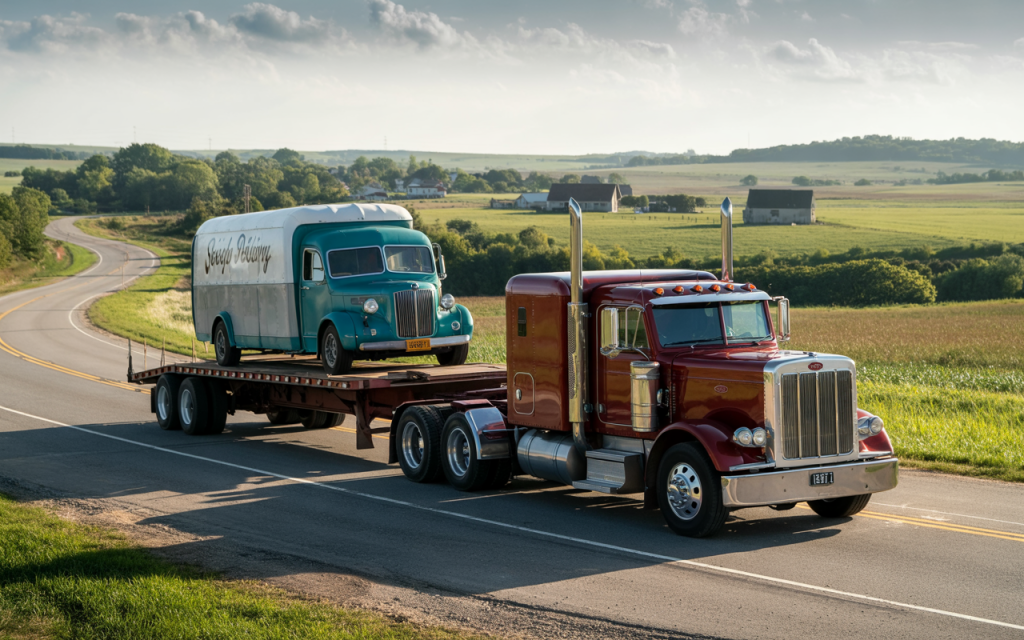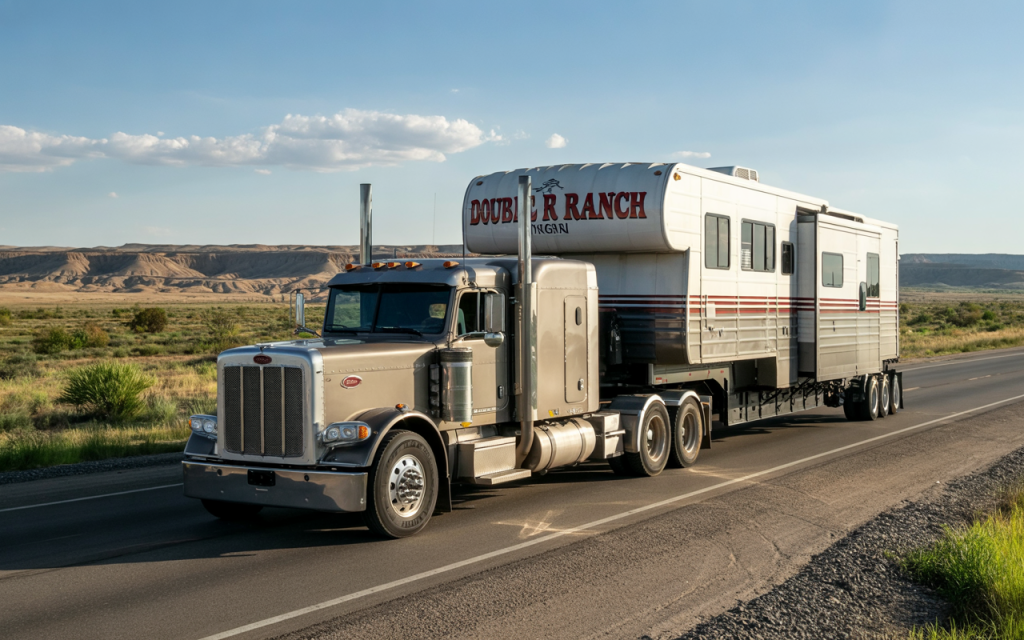How We Plan Heavy Haul Routes in Massachusetts – Avoiding Delays, Fines, and Safety Risks
Freedom Heavy Haul can offer expedited Pickup and Delivery for any size shipment anywhere in the USA. Contact us today for No Hassle, No Pressure Pricing.
When transporting oversize or overweight freight in Massachusetts, our approach to route planning is designed to prevent delays, avoid fines, and ensure the cargo arrives safely and legally. From permits to infrastructure checks, every step matters.
In this article, you will learn how How We Plan Heavy Haul Routes in Massachusetts, and avoid delays, fines and safety risks.
Understanding Legal Limits Before the Truck Moves
Before anything hits the road, we begin by reviewing Massachusetts’ legal weight and size limits. These define whether a permit is needed:
- Maximum width: 8 feet 6 inches
- Maximum height: 13 feet 6 inches
- Maximum gross vehicle weight: 80,000 pounds
If any shipment exceeds these numbers, we don’t move forward without the appropriate Oversize/Overweight (OS/OW) permit issued by MassDOT. Skipping this step is not an option — it can lead to fines, forced detours, or even vehicle impoundment.
Choosing the Right Permit for the Job
We determine the permit type based on the load and trip frequency. For single shipments, we apply for a Single Trip Permit. If the route is used regularly, we may secure an Annual Permit to simplify future trips. For very large or heavy shipments, we apply for a Superload Permit, which may require a route study and additional clearances.

To apply, we provide MassDOT with:
- Load dimensions and total weight
- Details about vehicle and axle configuration
- Origin and destination points
- Preferred date and time for the move
For Superloads, we submit permit applications 7 to 10 business days in advance to allow time for necessary approvals.
Navigating Infrastructure Constraints
Massachusetts has infrastructure that was not built with modern heavy freight in mind. We take that seriously during the planning phase. Older bridges, tunnels, tight city intersections, and narrow roads can all create issues. We carefully review the proposed route and check for:

- Low-clearance bridges or tunnels
- Roads with weight or seasonal restrictions
- Tight turning angles, especially in urban areas
In places like Somerville, Lawrence, or downtown Boston, even one misjudged turn can lead to an unplanned stop. We avoid routes that present unnecessary risk to the cargo or the public.
Planning with the Right Equipment in Mind
Not all hauls can be done with standard equipment. We assess each load to determine what trailer and vehicle configuration is best. Some loads require:
- Hydraulic suspension systems
- Steerable axles for tight corners
- Additional axles for weight distribution
This isn’t just about legal compliance — it’s about protecting the roads, the load, and our team.
Adapting to Massachusetts Geography and Weather
We don’t use the same plan for every region. Massachusetts terrain can vary significantly between the hilly western towns and the tighter coastal and urban corridors.

In Western Massachusetts, we avoid scenic routes like the Mohawk Trail, sticking instead to major highways like I-90. In coastal areas like Gloucester or New Bedford, we build in flexibility for weather-related delays such as wind or flooding. Boston presents its own challenges with limited space, tunnel systems, and traffic. We schedule urban deliveries during off-peak hours and always confirm route restrictions with city officials in advance.
Working Closely with MassDOT and Local Authorities
Heavy haul transport in Massachusetts requires more than a state permit. Our team coordinates with local jurisdictions to confirm route approvals and arrange for additional services when necessary. This might include:
- Police escorts
- Traffic management plans
- Utility company coordination to raise or remove overhead lines
- Temporary road closures or detours
We don’t leave this coordination to chance — it’s a critical part of the planning phase.
Using Modern Tools for Better Route Accuracy
We use digital planning tools that combine traffic data, bridge ratings, and real-time updates. Route software like Bentley Superload helps us create reliable, pre-approved paths. These systems make it easier to:
- Track load progress in real time
- Avoid last-minute detours
- Keep digital records for compliance
- Adjust plans quickly if road conditions change
We keep our clients updated with accurate timelines and documentation, all in one place.
Preparing for the Unexpected
No matter how carefully we plan, unexpected challenges can arise — weather, construction, vehicle issues, or changes in route availability. That’s why we always have contingency plans ready. This includes:
- Pre-identified alternate routes
- Pilot car and escort availability
- Emergency contact lists
- Optional dry runs for high-value or oversized equipment
Our goal is to handle surprises before they turn into problems.
Real-World Examples of Our Planning Process
A recent transformer move from Worcester to Quincy involved a 125,000-pound load. We secured a Superload permit, coordinated with two pilot vehicles and a police escort, and worked with utility companies to temporarily raise power lines. The move was completed during off-peak hours to minimize congestion in Boston.
In another project, we transported a modular home through Western Massachusetts. Our original route had to be adjusted to avoid a historic bridge. We worked with local police for temporary lane closures and brought in a traffic coordinator for tight corners.
FAQs about How We Plan Heavy Haul Routes in Massachusetts
Here are some questions and answers about How We Plan Heavy Haul Routes in Massachusetts:
What is the maximum weight for trucks in Massachusetts without a permit?
80,000 pounds gross vehicle weight.
How far in advance should I apply for a Superload Permit?
At least 7 to 10 business days, depending on route complexity and load dimensions.
Are escorts always required for oversized loads?
Not always, but police escorts and pilot vehicles are often required for Superloads or moves through urban areas.
Can I haul oversize loads through Boston?
Yes, but only with proper permits and typically during off-peak hours. Coordination with local departments is usually required.
Is it better to apply for a Single Trip or Annual Permit?
If you’re using the same route multiple times, an Annual Permit can save time and money. For one-time moves, a Single Trip Permit is sufficient.
Conclusion
Heavy haul route planning in Massachusetts requires more than mapping a line between Point A and Point B. We manage every detail — permits, route checks, infrastructure analysis, equipment compatibility, and agency coordination — to protect your cargo, stay compliant, and keep everything running on time. When you partner with a team that understands the system, you don’t just get a route. You get a plan that works.







